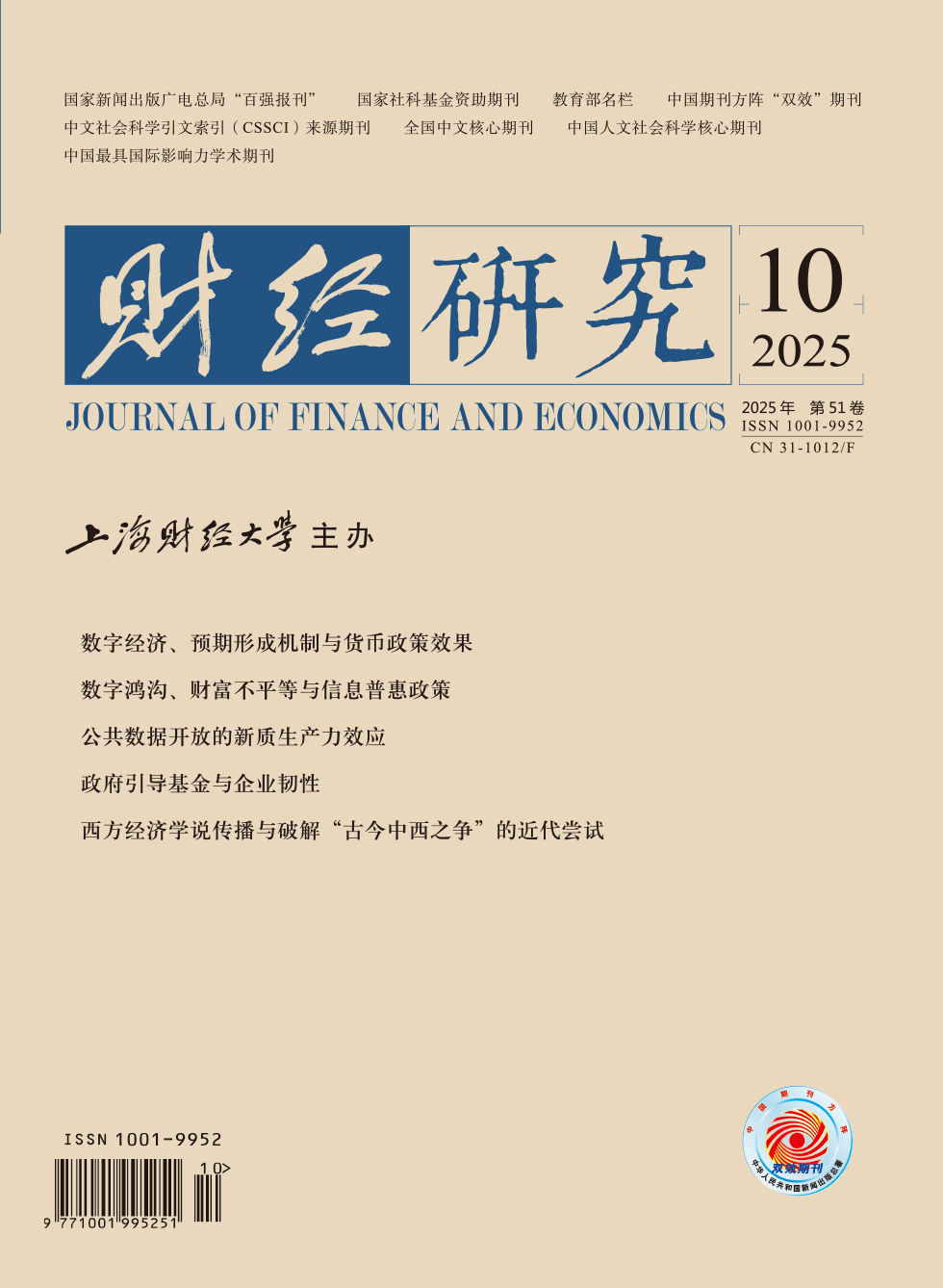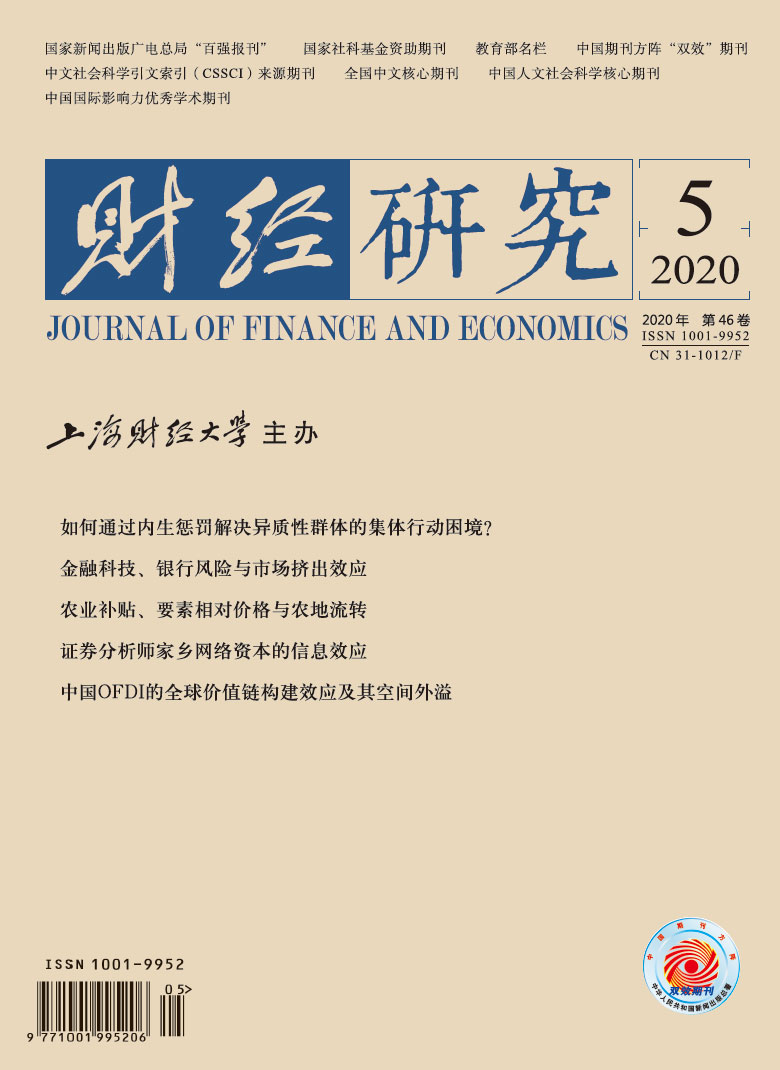合作与协调是人类社会的基本问题。经典理论预测,作为动机复杂且各不相同的行为主体,人与人之间围绕共同的事或物而发生的集体行动往往会落入“个体理性导致集体非理性”的困境。文章基于对中国转型社会一个城中村的长期观察发现,异质性程度大的群体也可以实现自我合作治理。为了弥合现有理论与经验证据的鸿沟,文章基于兰彻斯特法则拓展了现有的个体行为博弈模型和案例分析,找到了解决异质性群体集体行动困境的关键变量−内生的监督和惩罚。相较于政府或市场干预,自我治理组织的制度性建构及其运作,有助于产生符合大部分个体预期的内生监督和惩罚,更有效地维持公共事务自我治理的集体行动。
如何通过内生惩罚解决异质性群体的集体行动困境?——博弈模型与案例分析
摘要
参考文献
1 [美]曼瑟尔·奥尔森. 集体行动的逻辑[M]. 陈郁, 郭宇峰, 李崇新, 译. 上海: 格致出版社, 2014.
5 [美]塞缪尔·鲍尔斯, 赫伯特·金迪斯. 合作的物种−人类的互惠性及其演化[M]. 张弘, 译. 杭州: 浙江大学出版社, 2015.
7 周其仁. 城乡中国[M]. 北京: 中信出版社, 2017.
10 Adams E S,Mesterton-Gibbons M. Lanchester’s attrition models and fights among social animals[J]. Behavioral Ecology,2003,14(5): 719−723. DOI:10.1093/beheco/arg061
11 Baldwin K,Huber J D. Economic versus cultural differences:Forms of ethnic diversity and public goods provision[J]. American Political Science Review,2010,104(4): 644−662. DOI:10.1017/S0003055410000419
12 Balliet D,Mulder L B,Van Lange P A M. Reward,punishment,and cooperation:A meta-Analysis[J]. Psychological Bulletin,2011,137(4): 594−615. DOI:10.1037/a0023489
13 Burlando R M,Guala F. Heterogeneous agents in public goods experiments[J]. Experimental Economics,2005,8(1): 35−54. DOI:10.1007/s10683-005-0436-4
14 Decker T,Stiehler A,Strobel M. A comparison of punishment rules in repeated public good games:An experimental study[J]. Journal of Conflict Resolution,2003,47(6): 751−772. DOI:10.1177/0022002703258795
15 Fehr E,Gächter S. Cooperation and punishment in public goods experiments[J]. American Economic Review,2000,90(4): 980−994. DOI:10.1257/aer.90.4.980
16 Fischbacher U,Gächter S. Social preferences,beliefs,and the dynamics of free riding in public goods experiments[J]. American Economic Review,2010,100(1): 541−556. DOI:10.1257/aer.100.1.541
17 Fischbacher U,Gächter S,Fehr E. Are people conditionally cooperative? Evidence from a public goods experiment[J]. Economics Letters,2001,71(3): 397−404. DOI:10.1016/S0165-1765(01)00394-9
18 Gächter S,Thöni C. Social learning and voluntary cooperation among like-minded people[J]. Journal of the European Economic Association,2005,3(2−3): 303−314. DOI:10.1162/jeea.2005.3.2-3.303
19 Houser D,Xiao E T,McCabe K,et al. When punishment fails:Research on sanctions,intentions and non-cooperation[J]. Games and Economic Behavior,2008,62(2): 509−532. DOI:10.1016/j.geb.2007.05.001
20 Hwang S H. Larger groups may alleviate collective action problems[R]. Working Papers 2009-05, 2009.
21 Hyde S D. Catch us if you can:Election monitoring and international norm diffusion[J]. American Journal of Political Science,2011,55(2): 356−369. DOI:10.1111/j.1540-5907.2011.00508.x
22 Johnson D D P,MacKay N J. Fight the power:Lanchester’s laws of combat in human evolution[J]. Evolution and Human Behavior,2015,36(2): 152−163. DOI:10.1016/j.evolhumbehav.2014.11.001
23 Masclet D,Noussair C,Tucker S,et al. Monetary and nonmonetary punishment in the voluntary contributions mecha- nism[J]. American Economic Review,2003,93(1): 366−380. DOI:10.1257/000282803321455359
24 Mathew S,Boyd R. Punishment sustains large-scale cooperation in prestate warfare[J]. Proceedings of the National Academy of Sciences of the United States of America,2011,108(28): 11375−11380. DOI:10.1073/pnas.1105604108
25 Ostrom E. Governing the commons: The evolution of institutions for collective action[M]. Cambridge: Cambridge University Press, 1990.
26 Ostrom E. Beyond markets and states:Polycentric governance of complex economic systems[J]. American Economic Review,2010,100(3): 641−672. DOI:10.1257/aer.100.3.641
27 Reuben E,Riedl A. Public goods provision and sanctioning in privileged groups[J]. Journal of Conflict Resolution,2009,53(1): 72−93. DOI:10.1177/0022002708322361
28 Ruttan L M. Economic heterogeneity and the commons:Effects on collective action and collective goods provisioning[J]. World Development,2008,36(5): 969−985. DOI:10.1016/j.worlddev.2007.05.005
29 Sutter M,Haigner S,Kocher M G. Choosing the carrot or the stick? Endogenous institutional choice in social dilemma situations[J]. Review of Economic Studies,2010,77(4): 1540−1566. DOI:10.1111/j.1467-937X.2010.00608.x
30 Xiao E T. Punishment, social norms, and cooperation[A]. Teitelbaum J C, Zeiler K. Research handbook on behavioral law and economics[M]. Northampton, Mass: Edward Elgar Publishing, 2018.
31 Xiao E T,Houser D. Punish in public[J]. Journal of Public Economics,2011,95(7-8): 1006−1017. DOI:10.1016/j.jpubeco.2010.11.021
32 Yang W,Liu W,Viña A,et al. Nonlinear effects of group size on collective action and resource outcomes[J]. Proceedings of the National Academy of Sciences of the United States of America,2013,110(27): 10916−10921. DOI:10.1073/pnas.1301733110
33 Zhang X Q,Zhu F. Group size and incentives to contribute:A natural experiment at Chinese Wikipedia[J]. American Economic Review,2011,101(4): 1601−1615. DOI:10.1257/aer.101.4.1601
引用本文
章平, 刘启超. 如何通过内生惩罚解决异质性群体的集体行动困境?——博弈模型与案例分析[J]. 财经研究, 2020, 46(5): 4-16.
导出参考文献,格式为:





 5507
5507  8606
8606

